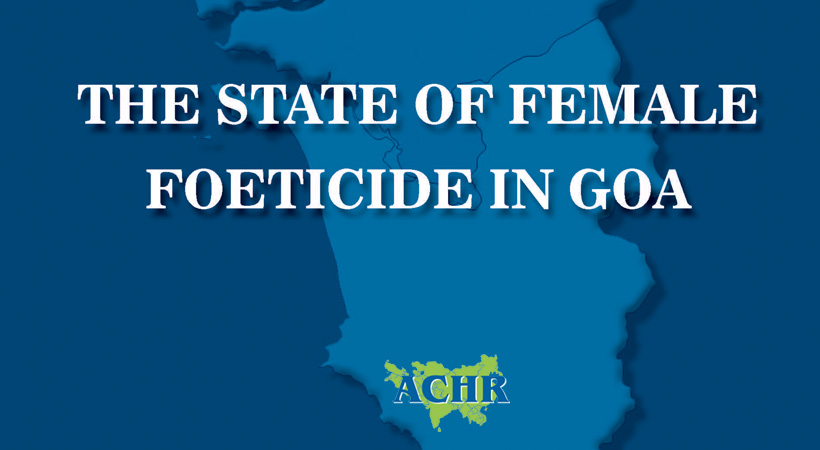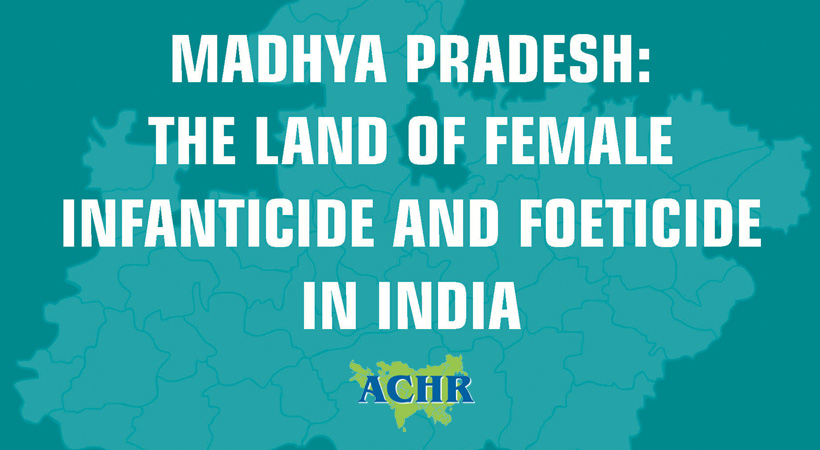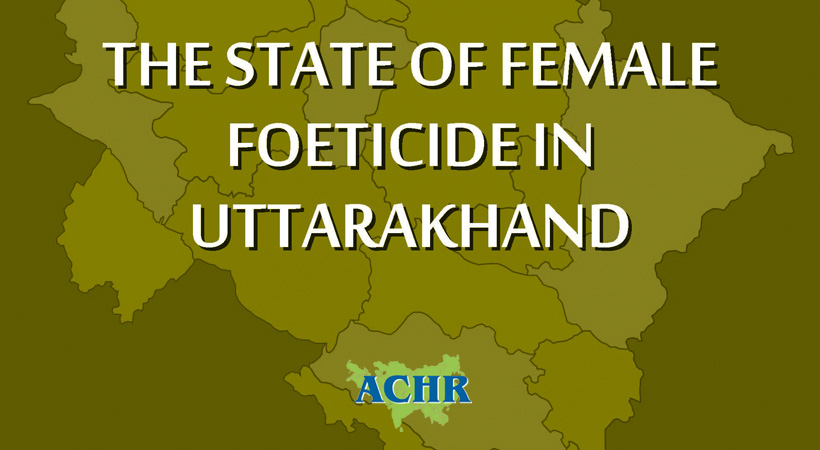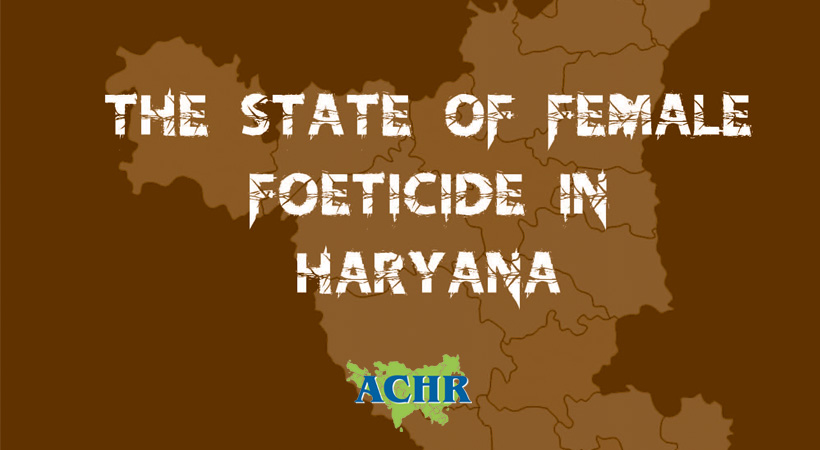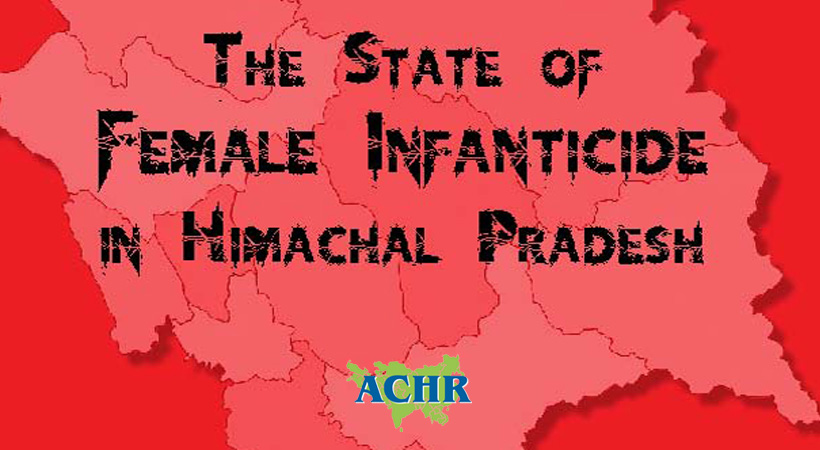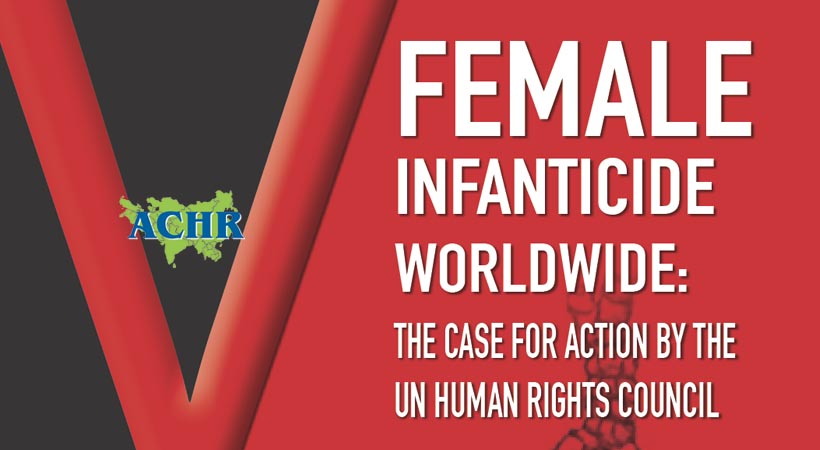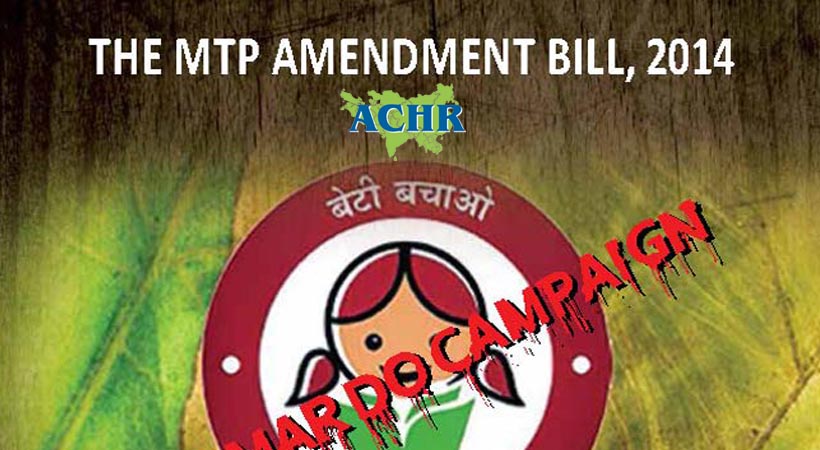Entire India has been affected by declining child sex ratio (CSR) i.e. the number of girls per 1,000 boys in the age group of 0-6 years. The declining CSR in Goa is a consequence of the use of diagnostic technology for sex determination and abortion and other extremely harmful social practices including legal sanction for […]
Info by Country
Madhya Pradesh: The land of female infanticide and foeticide in India
India is infamous for female foeticide and female infanticide, the crudest forms of gender based violence. The reasons for the same are well-known: “son preference and the belief that it is only the son who can perform the last rites, that lineage and inheritance runs through the male line, sons will look after parents in […]
The State of Female Foeticide in Uttarakhand
India has been severely affected by declining child sex ratio (CSR) especially since 1981 as a result of collusion between technology to detect sex of the foetus in early stage of pregnancy and traditional preference for boys. As per the Government of India, some of the reasons for low child sex ratio are son preference […]
Judicial Reponse to the PC&PNDT Act
The Government of India enacted the Pre-conception and Prenatal Diagnostic Techniques (Prohibition of Sex Selection) Act, 1994 (PC&PNDT Act) to address the menace of sex selection leading to female foeticide. After 20 years, as per information placed by the Ministry of Health and Family Welfare before the Lok Sabha on 27.02.2015, 14 States/UTs i.e. Arunachal […]
The State of Female Foeticide in Haryana
Child Sex Ratio (CSR) i.e. the number of girls per 1,000 boys in the age group 0-6 years has reached alarming proportion in India. Haryana has the lowest CSR among the States and Union Territories in India. As per the Government of India, “some of the reasons for neglect of girl child and low child […]
The State of Female Infanticide in Himachal Pradesh
Child Sex Ratio (CSR) has seriously declined from 982 female per 1000 boys (0-6 years) in 1971, the period before the use of the ultrasound machines, to 909 in 2011 in Himachal Pradesh. All the top five districts of the State with lowest CSR i.e. Una (870), Kangra (873), Hamirpur (881), Bilaspur (893) and Solan […]
The MTP Amendment Bill, 2014: India’s Beti Mar Do Campaign
In its pursuit of introducing India’s civilisational values in the field of medicine, the National Democratic Alliance (NDA) led Government of India has proposed further amendments to the Medical Termination of Pregnancy Act of 1971 in October 2014 to allow AYUSH practitioners (excluding Yoga and Naturopathy), homeopaths, nurses and auxiliary nurse midwife (ANM) to conduct […]
Maldives – ACHR seeks UN action against Supreme Court judges for violation of the UN Human Rights Council Resolution
New Delhi: Asian Centre for Human Rights today urged the President of the UN Human Rights Council (UNHRC, Ambassador Mr Joachim Rücker of Germany to issue a “President’s Statement” on the situation of human rights in Maldives at the ongoing 29th Session of the UNHRC for the blatant violation of the UNHRC Resolution No. 24/24 of 9 October 2013 […]
ACHR welcomes UN High Commissioner’s statement on unlawful conviction of Maldives’ ex-President
NEW DELHI: The Asian Centre for Human Rights (ACHR) today welcomed the statement of the UN High Commissioner for Human Rights Zeid Ra’ad Al Hussein which questioned the unfair and hasty trial for convicting Maldives’s ex-President Mohammed Nasheed to 13 years imprisonment under trumped up terrorism charges and called for respect for standards of fair trial including “adequate time […]

